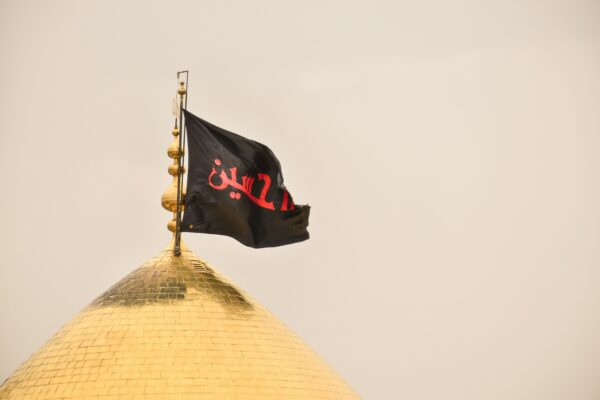Sectarian fighting is hurting the Muslim Ummah
Sectarian fighting is hurting the Muslim Ummah
You know, that feeling when someone judges you or treats you differently just because of your beliefs. It’s something many of us have experienced at some point, whether it’s getting strange looks in public or facing discrimination at work or school.
There are numerous instances where non-Muslims are given a wrong perception of Islam and provoked against Muslims. It’s truly disheartening to witness such incidents. Every single Muslim passionately wishes that these individuals would educate themselves about Islam so that they understand “What exactly is Islam?”
When they learn about Islam, they’ll understand that Islam promotes peace, love, and security, and even prohibits harming non-Muslims.
But only a few of them try to learn about Islam, while the rest just cling to the agenda of “hating Muslims without bothering to understand their faith.” The impact of Islamophobia is far-reaching, affecting countless lives.
It’s disheartening to see individuals stuck on false assumptions and propagate hate. The only way to break this cycle of religious intolerance is through education and empathy.
But the fact is that the majority of people aren’t ready to learn others’ beliefs.
Now, let’s put Islamophobia aside and discuss religious intolerance, which unfortunately exists within the Muslim community. Yes, you read correctly! I’m talking about that religious intolerance that a Muslim holds for other fellow Muslims who are from other schools of thought.
Did I say anything wrong? We have all witnessed this kind of religious intolerance. Let’s talk about it and break stereotypes.
We all use social media, and often, we encounter content where people try to discredit each other’s beliefs by demeaning one another, cursing one another and pushing each other into hellfire. They splashed titles on their content, proudly proclaiming, ‘we demolished them’ and ‘condemning a specific sect to hell.’
This type of approach fuels religious extremism. It does not lead to the reform of any sect but rather spreads discord among Muslims.
Individuals who promote sectarian hate often attribute false claims to opposing sects, which have no basis in reality. People who blindly follow them believe in these fabrications, which lead to chaos.
Allah SWT advised us in the Glorious Quran;
O believers! If some wicked person brings you any news, inquire thoroughly into its truth (lest) you should cause (undue) harm to a people unknowingly, and later feel regret for what you have done.”
[49:6]
The problem also arises when we talk about early Islamic history. If someone asks for your opinion that differs from theirs on what happened in early Islamic history, it often leads to conflict. It turns into people ganging up on each other, cursing one another, and non-Muslims witness our fights in this manner. We are all unable to understand each other’s reading of history. This leads to Shia-Sunni conflicts.
After the demise of the Prophet (PBUH) until today, 1400 years later, many people have studied Islamic history. Conflicts about early Islamic history exist because different people have different interpretations of what happened. When someone’s opinion clashes with another’s, it often leads to arguments and fights. These people should try to realize that they have their own reading of history, and you have yours. The solution is for everyone to try to understand and respect each other’s viewpoints. Instead of fighting, we should listen to each other and find common ground.
After the passing of the Holy Prophet (PBUH) and his family, many of us may not necessarily understand how our paths evolved or developed. Some of us may have a basic understanding, while others may only have a basic overview.
However, the problem with having a basic understanding or overview is that it may lead to committing injustice against millions of people who follow a particular path. This could affect relations between Shia and Sunni communities, causing tensions and misunderstandings. If we fail to make an effort to understand the various viewpoints held by our fellow Muslims, should we then expect non-Muslims to take the initiative to educate themselves about our religion?
The problem arises when we make mountains out of molehills, pushing each other towards hell based on minor differences, causing unnecessary trouble in society.
Most people simplify these schools of thought, as Sunnis follow the Sahaba (companion of the Holy Prophet (PBUH) )instead of the Ahl al-Bayt. At the same time, Shias have an attachment to Imam Ali and some of them (God forbid) even worship him.
This is an oversimplified concept, and there are false assumptions.
These schools of thought in the religion of Islam cannot be simplified in this way, and there is no way that their theology, law, spirituality, or ethical systems can be simplified either.
It is crucial to acknowledge the diversity within Islamic beliefs. Contrary to common misconceptions, Shi’as Muslims do not worship Imam Ali and do not harbor animosity towards all the companions of the Prophet. Similarly, Sunni beliefs encompass a spectrum of perspectives. Some Sunni Muslims emphasize the significance of Ahl al-Bayt, the family of the Prophet.
When you’re discussing events from 1400 years ago, you’re delving into centuries of scholarship, theological debates, and various legal instructions. We must appreciate each other’s interpretations of the development of Islam, even if we are comfortable with our own theological subscriptions.
As we navigate the diverse interpretations within Islamic history and theology, it’s crucial to remember the profound wisdom encapsulated in a hadith narrated by Imam Ahmad and Tirmidhi. In this hadith, Prophet Muhammad (PBUH) states.
The difference of opinion among my community is a mercy.”
From this hadith, it is evident that differences within the Muslim community are a mercy, but unfortunately, we have turned these differences into hardships. Extremism is being spread in the name of religion, and hatred is being fueled towards each other based on holding opposing views. This hadith emphasizes the importance of recognizing and respecting the diverse viewpoints that exist within the Muslim ummah. Instead of viewing differences as sources of division, we should embrace them as opportunities for growth, understanding, and mutual respect.
It’s important to recognize that one can uphold pride in their Islamic school of thought without resorting to insults, curses, threats, or violence against others who may follow different interpretations.
To address differences of opinion constructively, Muslims can adopt several approaches. Firstly, fostering a culture of respectful dialogue and empathy is crucial. Instead of dismissing opposing viewpoints, individuals should actively listen, seek to understand, and engage in constructive discussions.
But unfortunately what we usually do, instead of listening to the perspective of someone with differing opinions, we often criticise and curse them, which breeds animosity. We’ve essentially turned these conversations into ego battles, where we’re determined to prove the opposing party wrong, even if they’re right, and stubbornly stick to our own incorrect assertions.
Secondly, promoting education and critical thinking skills can empower individuals to discern between valid differences and baseless disagreements. Muslims can navigate differences with greater clarity and insight by encouraging a nuanced understanding of Islamic history and theology.
If we look closely, we all have one common purpose: to attain closeness to Allah (swt). We adopt various paths to attain closeness to Allah (swt) and His Messenger (PBUH). We should know Islam is a peaceful religion promoting brotherhood and harmony. If you believe you are right and wish to guide others, do so in the most beautiful manner. If they understand your perspective, that’s great, but if they react differently, you have no right to cause them any harm, whether through hurtful words or other means.
Allah Almighty has advised the Noble Prophet (PBUH) in the Quran, which is a guiding light for all of us.
(O Glorious Messenger!) Invite towards the path of your Lord with wisdom and refined exhortation and (also) argue with them in a most decent manner. Surely, your Lord knows well the one who strayed away from His path, and He also knows well the rightly guided.
[16:25]
You can’t force anyone to agree with your theory. Your duty is to communicate your message in the best possible way. Fulfill your responsibility, and leave the rest to Allah and the individual, as we’re not accountable for their actions.
Allah (swt) said,
The truth is that whoever you like (to bring on to the path of guidance), you do not yourself bring him on to the path of guidance. Instead, (it so happens that) whomever Allah pleases, He makes him tread the path of guidance (through your mediation). And He knows best those who find the path of guidance.”
[28:56]
It’s important for us to embrace the good practices from different schools of thought within Islam. Rather than hesitating, we should eagerly accept and appreciate the positive contributions of different perspectives. This openness doesn’t just help us understand Islam better but brings us closer together as a community. By focusing on shared values and principles, we can transcend sectarian divides and work together towards common goals. This way, we build a stronger and more inclusive ummah, based on respect and cooperation among all its members.
If our aim is to become good Muslims, then we will break down the high walls of sectarianism and learn from each other, adopting actions that bring us closer to Allah and His Messenger. Peace be upon him.
By emphasizing shared values, we can overcome divisions. Both branches of Islam adhere to the five pillars of Islam, and the Hadith of Thaqalayn is present in both Shia and Sunni teachings.
The Prophet Muhammad (PBUH), said,
Verily, I leave behind two precious things amongst you: the Book of Allah and my Ahl al Bayt. Verily, the two will never separate until they come back to me by the side of the kawthar.”
Prophet (PBUH) may have repeated this statement on various occasions, such as during his Farewell Pilgrimage and later at the Ghadir Khumm.
Similar versions of the hadith can be found in other major Sunni sources, including Sahih Muslim, Sahih al-Tirmidhi, and Sunan al-Darimi.
The hadith of the thaqalayn has been transmitted through more than a hundred channels by over thirty-five Companions of the Prophet.
Allah (swt) addressed his messenger Muhammad (PBUH) in Holy Quran,
Say: ‘I do not ask for any recompense for this (preaching the faith in Messengership), but (seek) love for (my) kindreds (and Allah’s nearness).’ And whoever earns good, We shall increase for him the reward in the Hereafter. Surely, Allah is Most Forgiving, Most Appreciative.”
[42:23]
There’s another Hadith narrated by Abuzar Ghafari
“The example of my household among you is like Noah’s Ark, whoever boards it will survive and whoever misses it will drown.”
This hadith is mentioned in both Shia and Sunni books.
(Al-Mustadrak ‘ala al-Sahihayn, Sahih Muslim, uyun al akbar al Rida, al- amali (by Al-Saduq) , al-amali (by al-Tusi))
We can unite as a cohesive ummah if we steadfastly follow the Quran and Ahl al-Bayt.
In today’s divisive atmosphere, some Muslims prioritize sectarianism over truth, even turning away from what is right. This mindset is often rooted in the notion that if another sect is acting upon something, why should we follow suit?
In this way, they’re not causing harm to any particular sect but rather undermining their own faith.
The Quran says:
Do not let enmity towards any people compel you to deviate from justice.”
[5:8]
Conclusion:
In a world where misunderstanding and prejudice too often overshadow the beauty of diversity, it is essential for Muslims to uphold the teachings of tolerance and compassion exemplified by Islam.
Allah (swt) says in Surah Āl ‘Imrān of Holy Quran,
And hold fast to the rope of Allah, all of you together, and do not generate dissension and factions…….And become not like those who split into sects and dissented even after manifest signs had reached them. And it is they who will suffer grievous torment.”
We can create a more inclusive and peaceful world by embracing diversity and respecting each other’s beliefs. Let’s focus on building connections instead of divisions and strive to live by the values of compassion and unity that Islam teaches us. Let’s learn from each other.





